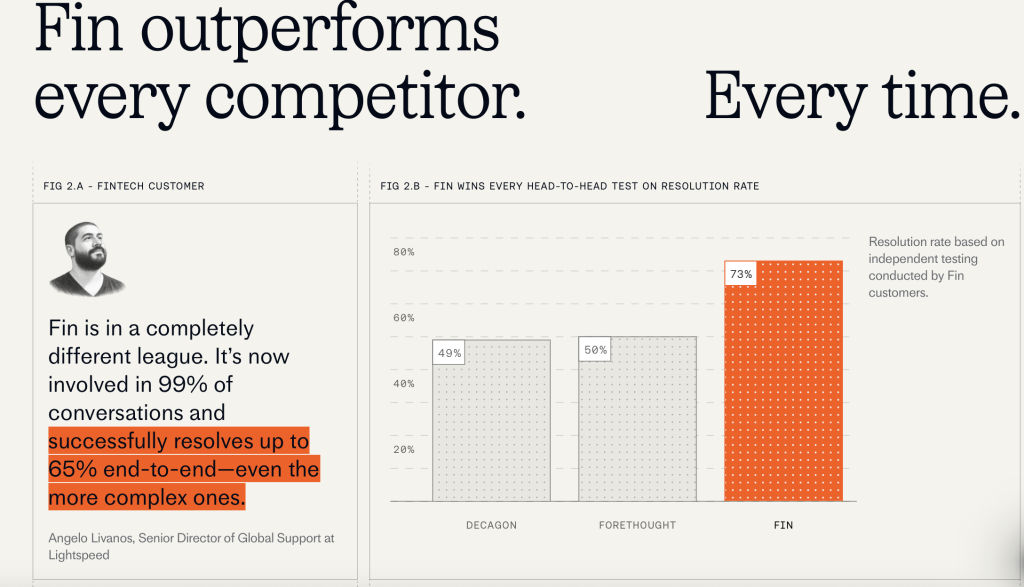Customer support is the business function everyone wants to improve but no one particularly enjoys tackling. While most companies were still relying on bloated help centers, template replies, and customer service reps running on caffeine and copy-paste shortcuts, Deepak Singla decided to build something better. Fini AI wasn’t designed to slightly improve support, it was created to rethink the entire system. Instead of routing tickets or automating FAQs, Fini’s AI agents step in like fully trained team members who can actually take action, resolve issues, and handle real customer needs without burning out or needing a lunch break.
Today, Fini AI is making more than $190,000 per month and automating over 500,000 support interactions monthly across fintech, e-commerce, and healthcare. Whether it’s issuing a refund, checking a customer’s KYC status, or pausing a subscription, Fini’s AI does it with 98% accuracy, which is better than most humans on a Friday afternoon.
The idea for Fini came from firsthand frustration. At Uber, I led Product Growth and saw hundreds of agents handling repeat questions, things that should’ve been automated
Deepak Singla
From Uber Overload to AI Order
So, he partnered with a co-founder and built the first version of Fin.ai, hoping to transform how businesses handled support. The first attempt didn’t go so well, they built the product, launched it, and were met with complete silence. No users, no traction, just a lot of internal Slack messages and awkward optimism.
Take 2
Instead of doubling down on a product no one seemed to want, the Fin.ai team took a different approach. They embedded themselves inside a real fintech support team for four weeks, watching every issue, every process, and every workaround. That experience reshaped the product entirely, they realized that to build effective AI agents, they needed a new foundation, a knowledge structure built specifically for AI to reason and take action, not just generate text.
Before founding Fin.ai, Deepak was leading customer experience at Uber, where support was more of a fire drill than a function. Tickets arrived by the thousands, agents were drowning in repetition, and scaling meant hiring armies of people just to answer the same handful of questions over and over. Deepak saw firsthand that human led support didn’t scale, at least not well, and realized that AI could do more than just chat. It could act.
They rebuilt Fin.ai from scratch and signed their first customer soon after, a company willing to pay $500 per month. Within weeks, that client was resolving 70 percent of their tickets automatically, that was the proof they needed.

Growth & Scaling
Fin.ai’s growth didn’t come from hype or headline grabbing launches, it came from relentless focus and customer obsession. The early traction came through personal outreach, referrals, and word of mouth. Deepak posted regularly on LinkedIn, sharing what they were building, the challenges they faced, and the lessons learned. The transparency and clarity built trust with other founders and CX leaders, the kind of people who value insights over sales pitches.
They also ran incredibly targeted outbound campaigns, instead of sending generic emails, they would review a company’s help center, identify gaps in their support flow, and send thoughtful messages explaining exactly how Fin.ai could help. One LinkedIn post, a teardown of why most AI chatbots fail in fintech, generated four inbound leads in a single day. That post turned into a blog, which later became part of their sales collateral, every piece of content served a purpose, not just to attract attention but to create momentum and educate the market.
From $500 to 500,000 Tickets
It took nine months to reach their first $500 in monthly revenue, a pace that would scare off most founders, but Fin.ai team wasn’t chasing vanity metrics. They focused on getting one customer really successful, and then let that customer bring in the next. Growth was slow, but sticky. As each new company saw results, referrals started to roll in, eventually, they hit ten customers. Then a hundred, and before long, they were resolving support tickets at a scale most startups dream about.
Fin.ai didn’t scale because they threw money at marketing or chased enterprise contracts too early. They scaled because they solved one very specific pain for one very specific customer segment and did it better than anyone else.

What They Got Right (and What They Didn’t)
The biggest mistake was building too much before talking to users, they spent six months on a product that nobody needed. Once they started listening, really listening, everything changed. Deepak still joins customer support calls weekly, not to pitch, but to learn, the feedback loop from those calls drives the roadmap more than any analytics dashboard.
Another important shift (you’ll guess this one if you’ve read our articles on other founders!) was letting go of perfection. It’s amazing how often we see this come up with different founders, different sectors, even different business models, ecommerce, SaaS, apps, when it comes to advice and mistakes abandoning the pursuit of perfection in those early days is the most common piece of advise we see. Fin.ai was no different, there early product wasn’t sleek or impressive. It just worked and working was enough to build trust, shipping quickly, iterating based on feedback, and making continuous progress turned out to be far more important than nailing the UI from day one.
Starting Fini has been the most humbling and transformative journey of my life. I’ve learned that the best products don’t win, relentless execution does.
Deepak Singla
The Tools
Fin.ai’s toolkit was lean but effective. LinkedIn became their content engine, helping them connect with the right people in the right roles. Outbound emails weren’t automated spam, they were custom, thoughtful messages based on research. Customer support remained a priority, even as they scaled, and their AI architecture, designed without relying on RAG, helped maintain performance and precision across increasingly complex use cases.
Final Thoughts
Deepak’s advice to aspiring founders is refreshingly practical, start by solving one real, painful problem. Make your first few customers so happy they’d be genuinely upset if you disappeared and don’t obsess over going viral, focus on building trust. Share what you’re learning, show up every day, and be consistent, whether the business is booming or struggling, showing up is what keeps the momentum alive.
Fin.ai didn’t win because it looked impressive, it won because it worked. It solved a critical business challenge quietly, effectively, and at scale and in a world full of AI tools promising the moon, Deepak and his team proved that sometimes the best products are the ones that stop talking and just start helping.






